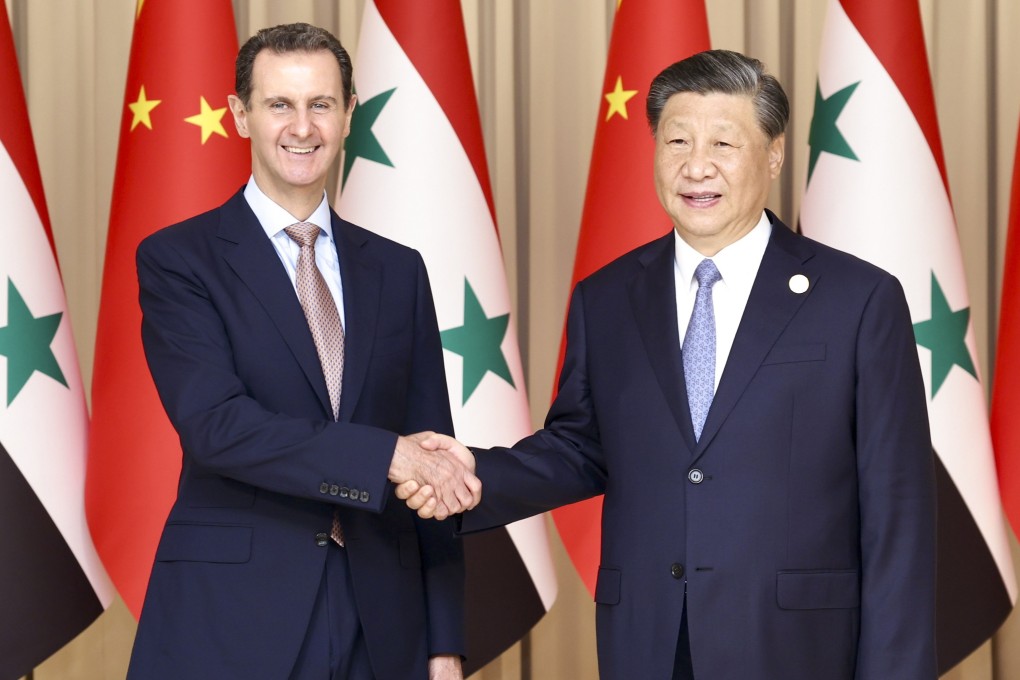Advertisement
Asian Angle | China’s outreach to Syria signals its growing sway in Middle East as counterweight to West
- Syrian President Bashar al-Assad’s visit to Hangzhou underscores Beijing’s aim to broaden its regional influence beyond trade
- But China’s aim to play a bigger role in the Middle East is being constrained by its own economic slowdown
Reading Time:3 minutes
Why you can trust SCMP
7

As the 19th Asian Games got under way in Hangzhou, Syrian President Bashar al-Assad arrived in the Chinese city for a significant bilateral summit with President Xi Jinping. The visit, amid a 12-year-long civil war that has shackled Assad’s international movements due to punishing sanctions and widespread ostracism, marked a significant turning point in China-Syria ties.
Advertisement
While the Western world continues to give the cold shoulder to Assad, regional powers in the Middle East have extended to him a cautious hand of welcome, with high-level meetings in both the UAE and Saudi Arabia. His attendance at the Arab League summit in May was evidence of this gradual rehabilitation.
From an international standpoint, his meeting with President Xi not only signifies a broader base of support for Assad but also holds the potential to consolidate his position on the domestic front, backed by a promising commitment from China for substantial investments in the country’s reconstruction.
President Xi’s stance on Syria can be succinctly summarised in his assertion that “China supports Syria in conducting reconstruction, enhancing counterterrorism capacity building, and promoting a political settlement of the Syrian issue following the ‘Syrian-led, Syrian-owned’ principle”.
Beijing has been steadfast in its commitment to promoting a Syrian-led political resolution since the outset of the civil war. Syria was among the first Arab nations to recognise the People’s Republic of China, but another catalyst for Beijing’s support has been its concerns that the Arab spring would spread across the region.
Advertisement

Advertisement
